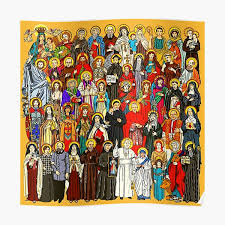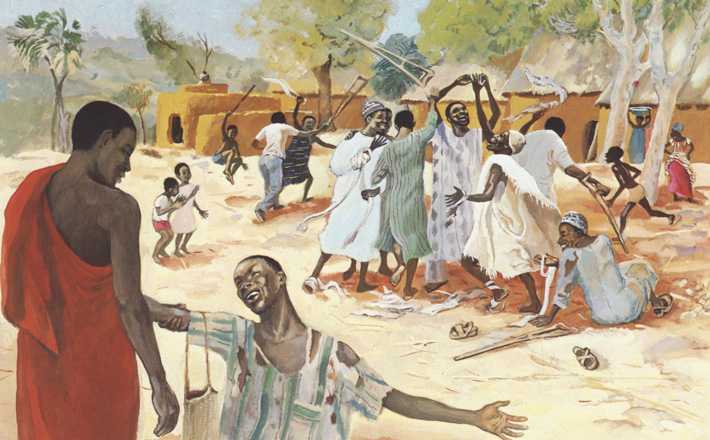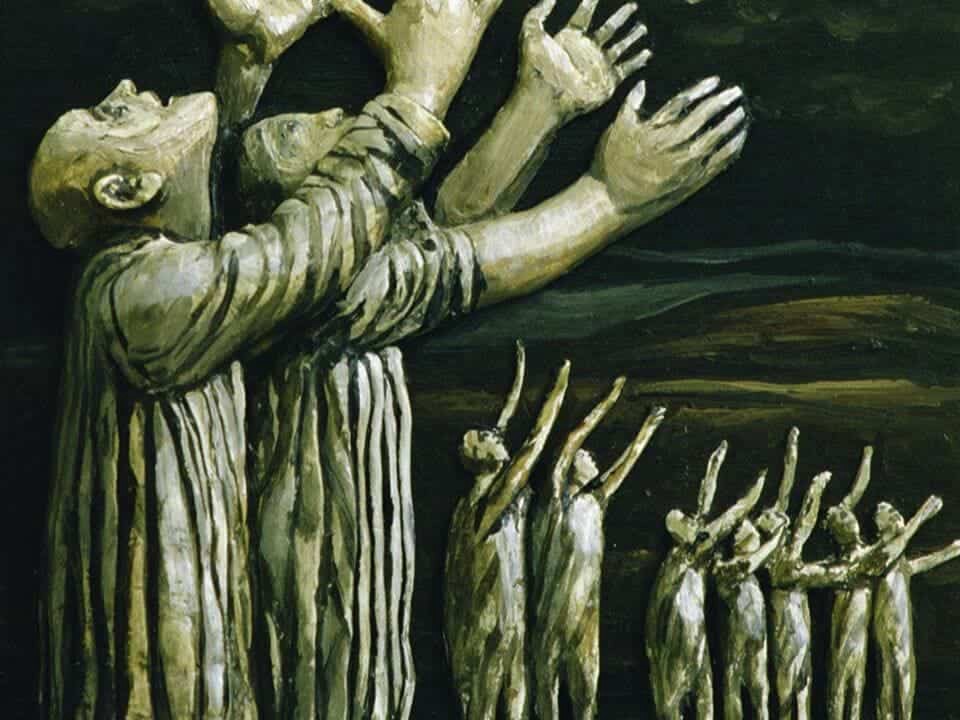
Saints…making God possible for others. A sermon for Adel Parish Church, All Saints Day, 2022.
Today we celebrate All Saints’ Day…which can seem a bit like the day to remember those saints not quite important enough to get their own special day!
Our prayer book – Common Worship – says it’s a celebration of ‘men and women in whose lives the church as a whole has seen the grace of God powerfully at work.’
Mark Oakley, in his book ‘By way of the heart’, puts it slightly differently, suggesting saints are those who ‘have kept the rumour of God alive on the face of this earth.’ I rather like that definition…there are so many competing voices in our modern world that making God possible for people as a source of love and life is a real challenge.
Women and men have done this in difficult circumstances through the ages, but Oakley goes on to give the example of Desmond Tutu, who died almost a year ago, as a saint for our times.
He cites Tutu’s faith, courage and humour as what made him a saint. Faith in a loving God who particularly seeks out the lost, the poor and the oppressed. But also faith that God’s love can transform any life whatever evils it has contained.
Tutu’s courage we know about. Courage to speak out against apartheid even when this led to prison. But also courage to call for truth and reconciliation rather than vengeance when apartheid eventually fell. And courage since then to oppose those within the church who would exclude people because of their sexuality.
For those who met him – his humour and joy are perhaps most memorable. David and Jill Dilks, who once attended a service he led, said they found themselves uncharacteristically dancing and clapping…not quite sure how, just sucked in by that infectious joy.
Few of us are lucky enough to meet someone like Desmond Tutu – but if we’re here today it’s probably because someone made God possible for us…someone kept the rumour of God alive.
I’d like to tell you about two such ‘saints’ in my life.
One you may’ve met, the Reverend Bob Shaw who presided and preached here on Trinity Sunday. He was my vicar when our children were small. He was kind, faith filled and thoughtful.
At the time I found it easier to relate to God as Father, than to Jesus. Bob led some discussions using this resource…’The Christ we Share’. It’s a collection of images from around the world…images of a white, black and Asian Christ; a happy and sad Christ; Christ through tribal eyes; a female Christ; a tortured Christ. Seeing Christ as others see him somehow helped me move from an intellectual understanding to a relationship with Christ. He made Christ as friend and saviour real for me.
Bob also used the phrase, quite often it seemed, ‘we are an Easter people’. That’s what makes God possible for me. We’re not stuck in the guilt, shame and horror of Good Friday. How ever bad things seem, we have hope that love will always have the final word.
My other saint is Jenny, elderly then, long gone to be with her God. Before I had children, I played in the church music group. When the children were babies there was a queue of people ready to hold them in church so I could play my flute. Once they were toddlers the job was less sought after…
But every parade service, there was Jenny, with a book, some crayons, and a smile that suggested she could imagine nothing better than entertaining a wriggly toddler through a church service. Jenny made worshipping God possible for me in a very practical way.
Bob and Jenny, definitely people who kept the rumour of God alive on this earth.
I wonder who have been the saints in your life? Who, by words or actions helped you begin a journey of faith; deepened your faith; held on to you when you felt faith impossible?
Who showed you the difference God’s love could make in your life? Who helped you chip away at obstacles to believing? Who gave you a lift, helped with the children…who’s made God possible for you?
When you’ve answered that question – if they’re still around, you might like to tell them. Most saints don’t recognise themselves as such! And if they’re no longer with us – don’t worry. The other thing we recognise at All Saints is that as Christians we’re all members of a company of Saints stretching backwards and forwards in time…so in a way you’re still worshipping with them.
Of course, if we’re all members of that company of saints, then we’re all called to ‘keep the rumour of God alive on this earth’. So when we’ve worked out how people made God possible for us…we need to work out how we can make God possible for others.
Everyone’s route to Christ is unique, but there will be common features. If you can’t imagine where to start – what helped you may well help others.
For the rumour of God to kept alive, God’s name, Christ’s name, need to be on our lips. If a friend is going through difficulties, I trust you would pray for them…but how about going a step further and asking if they’d like prayer? People rarely refuse.
If friends ask about your weekend – tell them you came to church. Tell them why…they’re probably more interested than you think.
If you find daily prayer, discussion groups…any of the things that happen in church help your faith…ask someone else along. They can say no, but they might just need someone to go with.
Our readings today show a developing understanding of the community of saints. In Daniel’s vision the beasts represent threats and persecution against God’s chosen people. In the letter to the Ephesians it’s clear that any follower of Christ is numbered amongst the saints. In our gospel, we’re told that community includes everyone, even our enemies, if only we can find a way to make God possible for them.

